The worlds of athletics and the media have inevitably collided. Many people cannot imagine not knowing their favorite team’s performance without having gone to the match physically. So whether we’ve tuned in to the radio, clicked the remote for the television, or simply checked our phone, the presence of the media has changed the way that the masses interact with athletics.
Media was even more important 40 years ago in the historic 1984 season for Bowling Green hockey.
Sports media was on the rise around 1984 but was far more primitive than today with higher demand and far fewer options to consider.
With no X, no Facebook, no FloHockey, and no Falcon Media Sports Network (as we know it), how did Falcon fans keep up with their historic team?
Two men were the cornerstone of team coverage.
Joe Borenstein: Radio
Joe Borenstein served as the play-by-play voice of BG hockey for the Bowling Green Sports Radio Organization, the predecessor to the Falcon Media Sports Network. On the same radio station the Falcon Media Sports Network uses today (88.1 WBGU-FM), he and his partner John Bowers verbalized to the remote city of Bowling Green the happenings of their favorite team on the ice.
After transferring in 1983 and in his first full year at Bowling Green, Borenstein landed the lead broadcaster job in as he says, “fluke” fashion.
“The first series I went up into the booth with a tape recorder to record myself, turning the tape into the play-by-play director, Gary Pala,” Borenstein said. “The other option for Pala, Greg Frankie, had the gig, but WFOB hired him away, so the job fell into my lap. On a Wednesday, I was told I had to broadcast the Friday and Saturday games, and I spent much of the next two days studying line charts.”
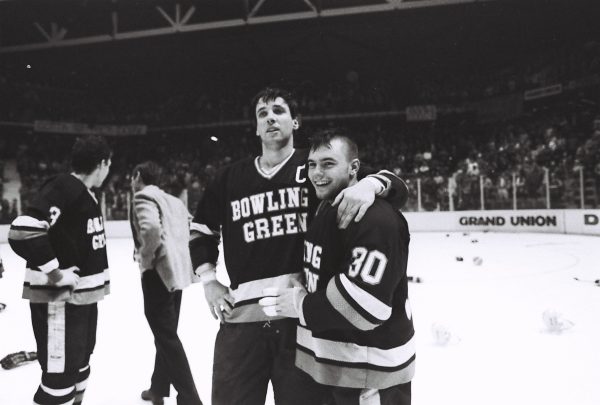
But the historic nature of the season didn’t only sit with the national championship. For the first time in BG hockey history, regular season away games were going to be consistently broadcast.
“Gary (Pala) and I had the vision that year of doing road broadcasts, so our first one was in Michigan State, part of that 17-0 unbeaten streak. We barely got on the air. Broadcasting through the phone line, which, surprise, is much harder than you might think. But we were able to get on and call a good sweep in Lansing which it was a blast.”
One of the main struggles for Borenstein and Bowers? Time.
“Being non-commercial radio, we had to fill the 15-or-so-minute intermission with something. We started doing this Falcon hockey profile between periods just to fill the time and I did 10-12-minute interviews with players or coaches, so we had something to fill the time on the radio, the team had a way to communicate, and the fans had a way to listen,” Borenstein said.
The two guys were not only broadcasters for the team but also fans of the team.
“It was kind of dream-like, to be honest,” Borenstein said. “The team got hot, 17 games in a row with either tie or win, mostly wins. They played smart hockey and determined hockey. You knew every game, they were in it, no matter how far down.”
Borenstein has had an outstanding career in radio and writing, from covering a BG National championship to athletes like Muhammad Ali and Tiger Woods, to governors and TV personalities, to the Olympics, and even political conventions.
“How lucky am I,” Borenstein said. “In one year (1984), I worked the BG national championship and the greatest year of BG hockey, the Democratic convention, the Los Angeles Olympics, and then the Republican convention. I owe it all to Bowling Green. If it weren’t for the practical experience at BG, none of that happened. One of the best choices I’ve ever made and some of the best years of my life.”
Steve Quinn: BG News
A junior in 1983-84, Steve Quinn covered BGSU athletics through the BG News, taking the beat for BG hockey just in time for the national championship season.
“I got lucky that I was able to land the beat,” Quinn said. “I had written some hockey stories my sophomore year and some football and basketball, but I loved hockey, and it was the sport that I gravitated towards. It was cool to land the beat that I wanted in such a substantial year.”
As a writer, Quinn had a unique perspective on the team and the obstacles they went through on their way to the top. One of which, was Boston University in the quarterfinal of the NCAA tournament.
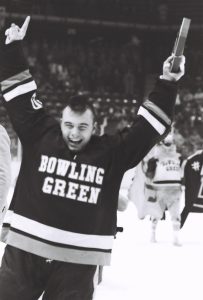
“The BU series cannot be overlooked. It was not just how they won in four overtimes; it was the two-game total-goal format that nearly dropped us. I saw defenseman Garry Galley in the hotel after they lost the first game 6-3, and he said, ‘We are going to win this thing tomorrow. We are going to Lake Placid for the finals. I promise.’ And they did it. They had a hurdle to clear with BU and they did what they came to do.”
This quote from Galley was not alone. Quinn gathered information from the players that gave insight into their processes and the identities that separated Bowling Green from other teams.
“I also had a conversation with Wayne Wilson who was a team captain and a gritty defenseman. He said ‘We had been training all year for that. It’s been a season of conditioning, and we were prepared to go into overtime.’ They were ready, and they had more steam than Minnesota-Duluth in the third and fourth overtime.”
Being around the team for as much as Quinn was, there was a plethora of opportunities to see the team that normal fans didn’t get. Gino Cavallini was a perfect example.
“Cavallini was just this guy who was incredible. You hear about these players who stay after practice to work on their shots. This guy did it. He was in front of the net working 45-50 shots after practice. It paid off to win the championship, he got that final goal. His job especially on power play was to get the rebounds and score the pucks that fall around the net and he was proficient at it.”
While his experiences with the NCAA tournament were exemplary, his writing was, unfortunately, minimal.
“I did not do a good job of creating memorable written stories, mainly because the whole thing happened over spring break. Why is that a big deal? Because without students, there is no newspaper, and without a newspaper, there was nowhere for me to publish a piece.”
While immensely disappointing that there was little written to show for the national championship (to no fault but circumstance), Quinn’s influence spanned throughout campus and Bowling Green for a historic season. Between his and Borenstein’s work with the hockey program, the Bowling Green community was able to share in what turned out to be arguably the greatest season in BGSU Athletics history.
For more stories related to BGSU Athletics, follow Falcon Media Sports Network on X (@bg_fmsn).

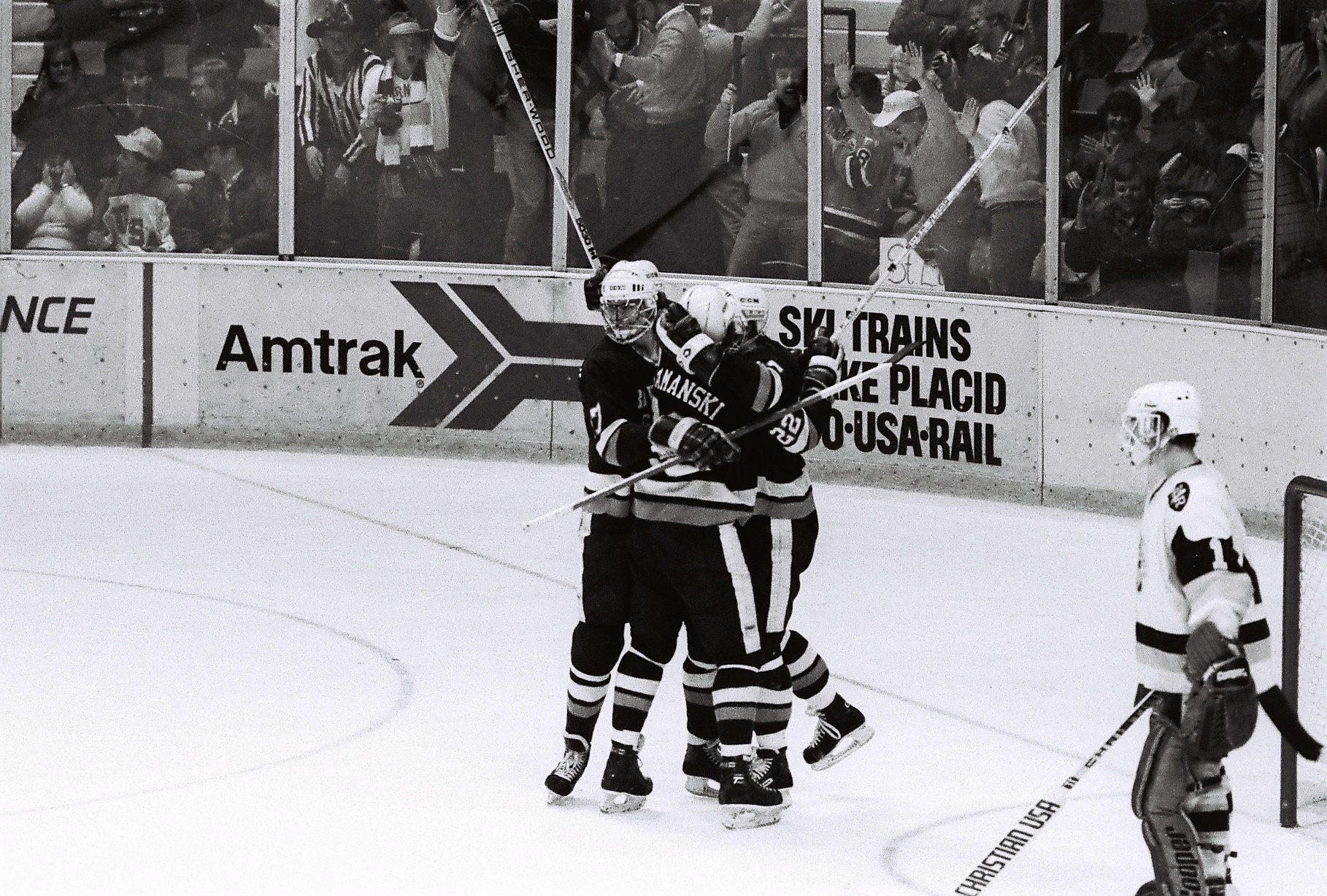
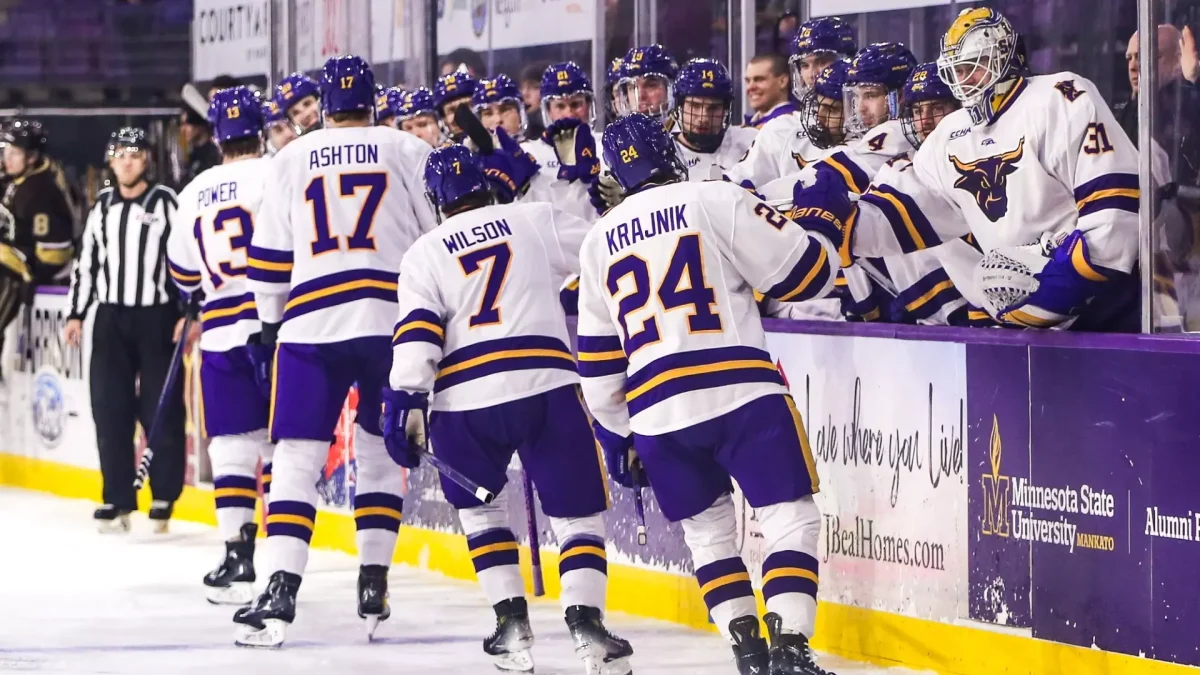
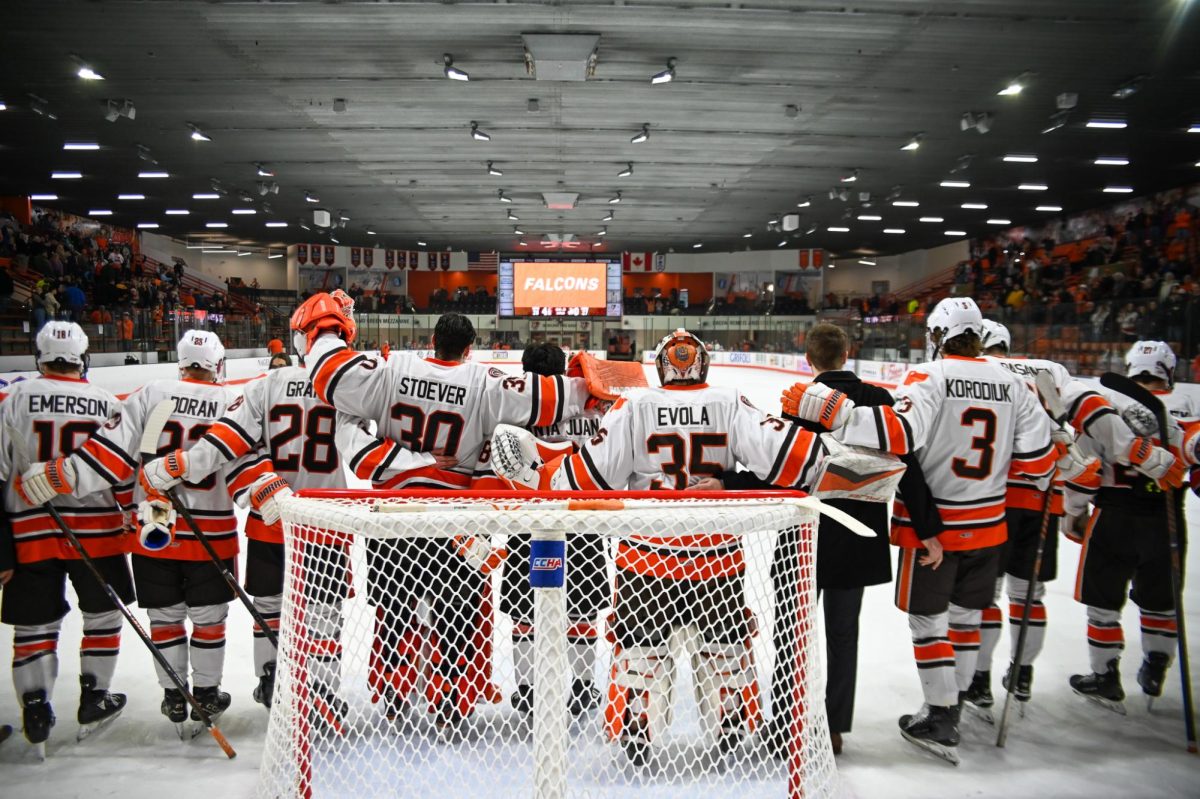
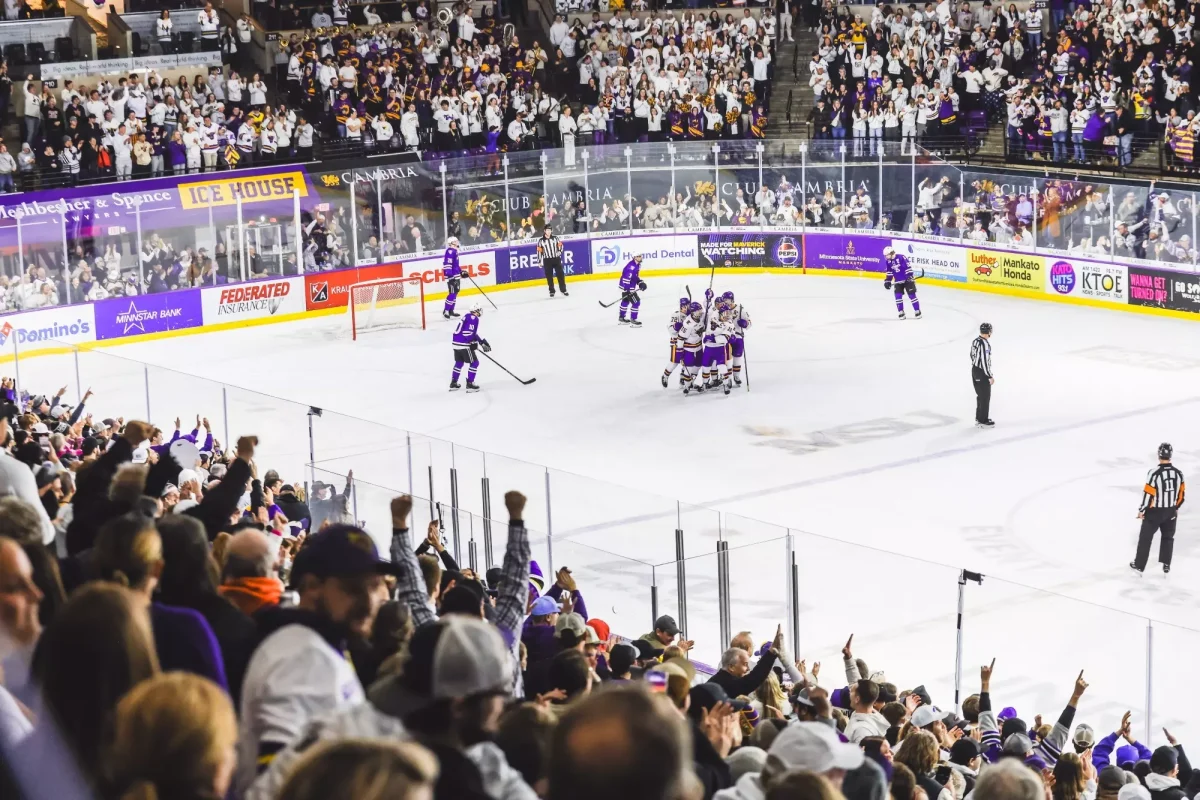
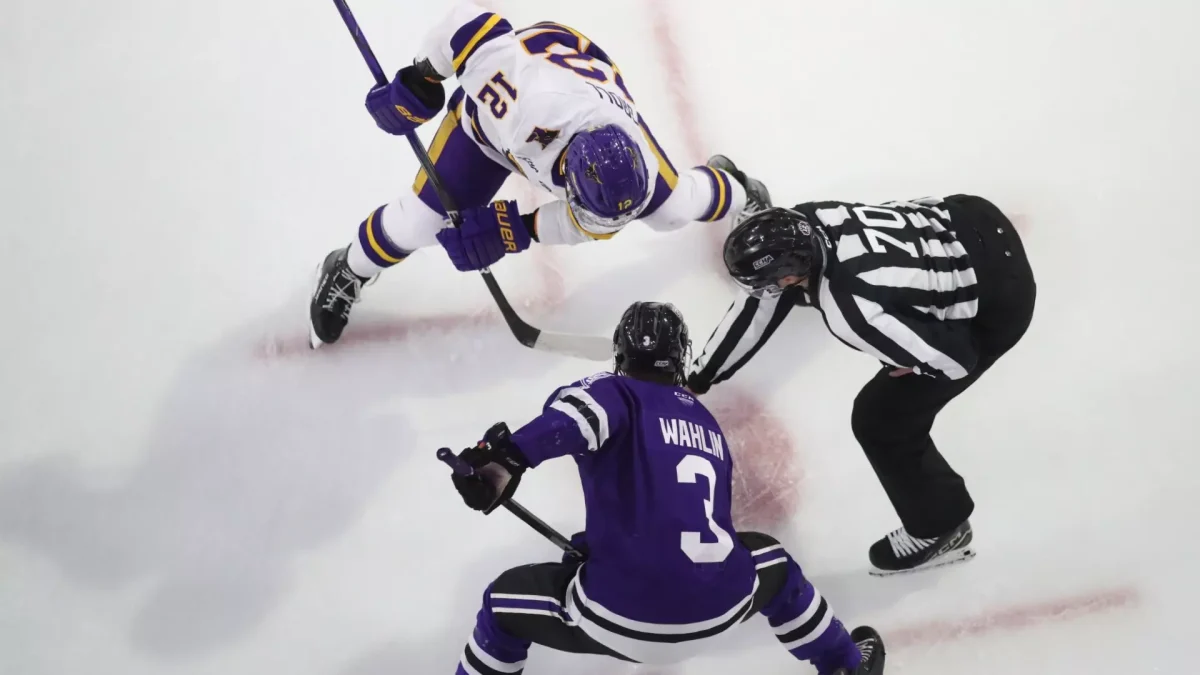
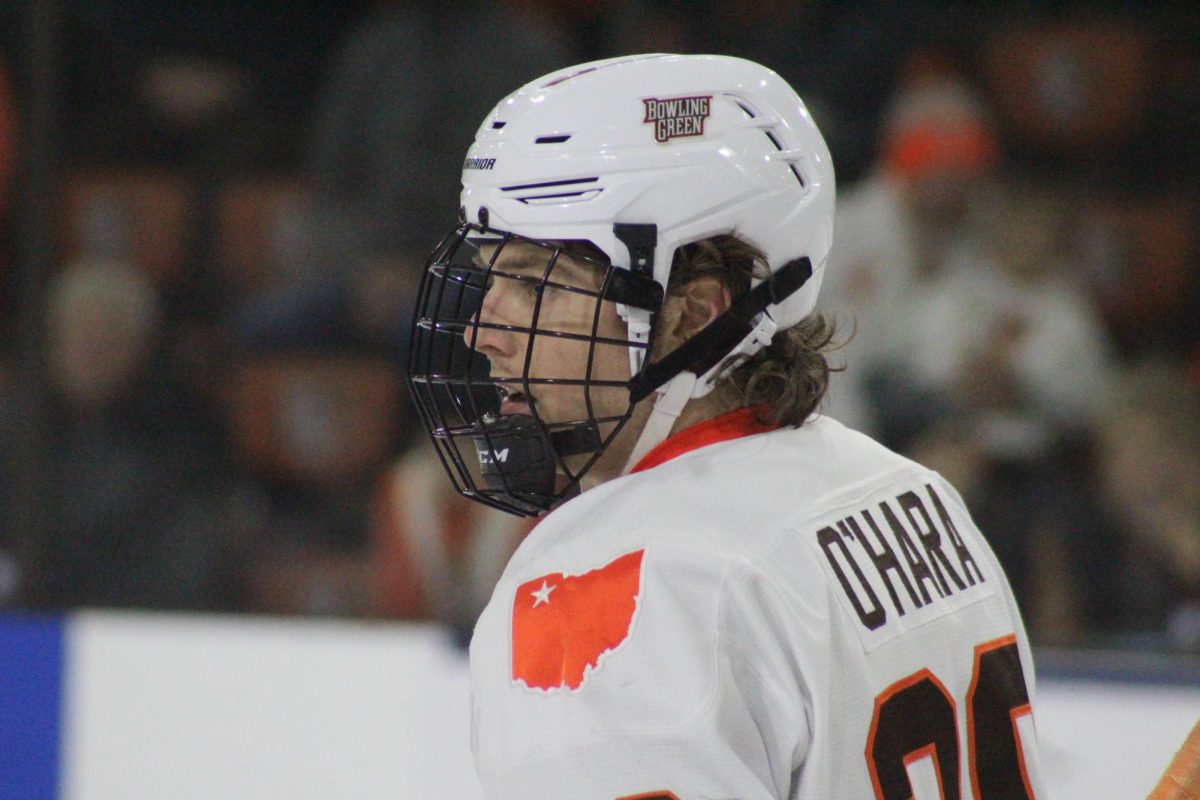
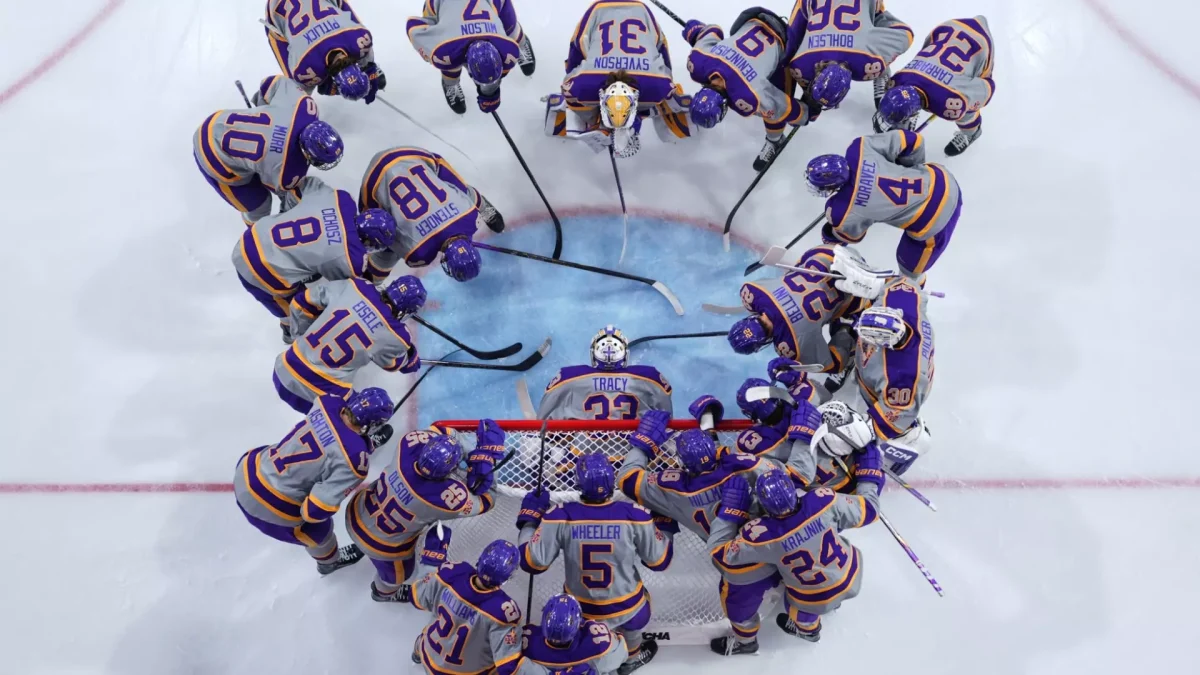
Kurt Sima • Feb 19, 2024 at 6:41 pm
An important element related to coverage of away hockey games including the NCAA final: money. I worked with Gary Pala to develop an underwriting program to bring in money to cover expenses. We could not sell commercials, however, we could secure underwriting sponsorship revenue. We secured enough money from a few local businesses to pay the expenses related to the broadcast on WBGU-FM.